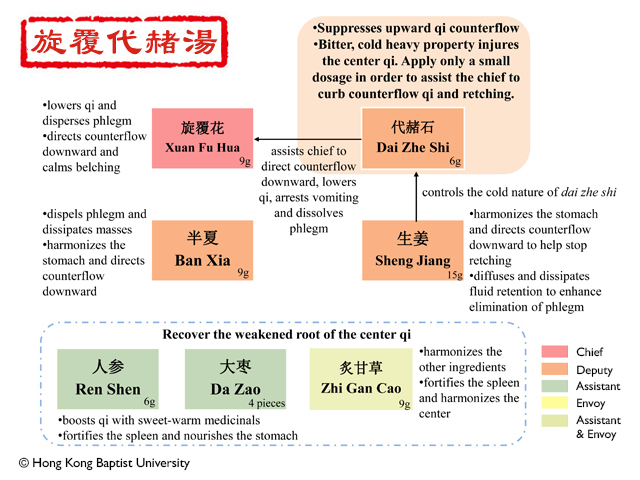
| Chief | Xuan Fu Hua |
| |
| Deputy | Dai Zhe Shi |
| Suppresses upward qi counterflow. Bitter, cold heavy property injures the center qi. Apply only a small dosage in order to assist the chief to curb counterflow qi and retching. |
| Deputy | Ban Xia |
| |
| Deputy | Sheng Jiang (large dosage) |
| |
| Assistant | Ren Shen |
| |
| Assistant | Da Zao |
| |
| Assistant&Envoy | Zhi Gan Cao |
| |
| Envoy | Gan Cao |
|